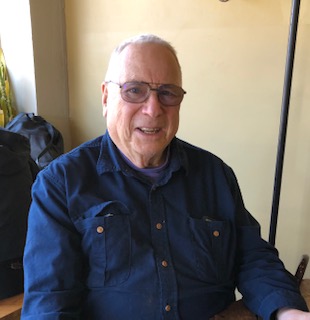OPINION: GOING VIRAL

Photo: Pixabay.com

Suddenly Amherst is connected to the rest of the world. Coronavirus does not think we are a special place, nor are we exempted from the foolish irresponsibility of the Trump administration. If we had a rational and responsible approach to testing, as South Korea and many other countries have, we might be able to plan realistic mitigation and even containment. But without the tests, we are all potential carriers and potential victims.
Since I am in the demographic most susceptible, I have been doing my best to self-quarantine, skipping meetings, social lunches and movies. But I go shopping when I need to, and pick up my meds. I am doing my best not to handle cash. I am realizing how often I touch my face, and how rarely I wash my hands and I have been trying to reverse those frequencies.
These are all small inconveniences compared to the threat to local businesses that depend upon students and older customers. I did not go for a haircut today, as I originally planned, and I wonder whether my barbershop, which caters to students, can survive for long? I hope younger healthy adults will make every effort to shop locally; there should be no problem finding parking spaces.
I have joined Amherst Neighbors, which has planned its official kick-off at the end of the month. Its purpose – to help seniors stay in their homes – was always praiseworthy but now becomes critical, as many seniors have decided they must literally stay in their homes. Other organizations that have long embraced service as part of their mission are figuring out how to accomplish this under these new conditions. It isn’t easy, since many service providers are themselves potentially at risk.
There is no real upside to this pandemic unless it is realizing that this is a foretaste of a world in which there is no place to hide from catastrophe. In this season of elections perhaps there is a new kind of question we should be asking candidates for office up and down the ballot. Perhaps we need them to think not only about how to address crises but also how to address the unintended consequences of their normal decisions. In Amherst, for example, greater density is in fashion, but we now realize that greater density is an invitation for disaster. What are we going to do about the great gatherings on the Town Common which solidify and celebrate our sense of community? How can the idea of community survive the need for separation?
Right now we are hoping that warmer weather may kill this virus, but we don’t know that it will. Scientists don’t know either. We don’t know that there isn’t another mutant down the road that will threaten us in ways we cannot now conceive? Maybe comic books, which have been presenting this scenario for decades, should be our required reading. Maybe we should start paying attention to the rest of the world and its peoples, many of whom live in uncertainty their whole lives? In Amherst, as in the United States, as in the world – we are all in this together. And suddenly that is no longer a cliche.
